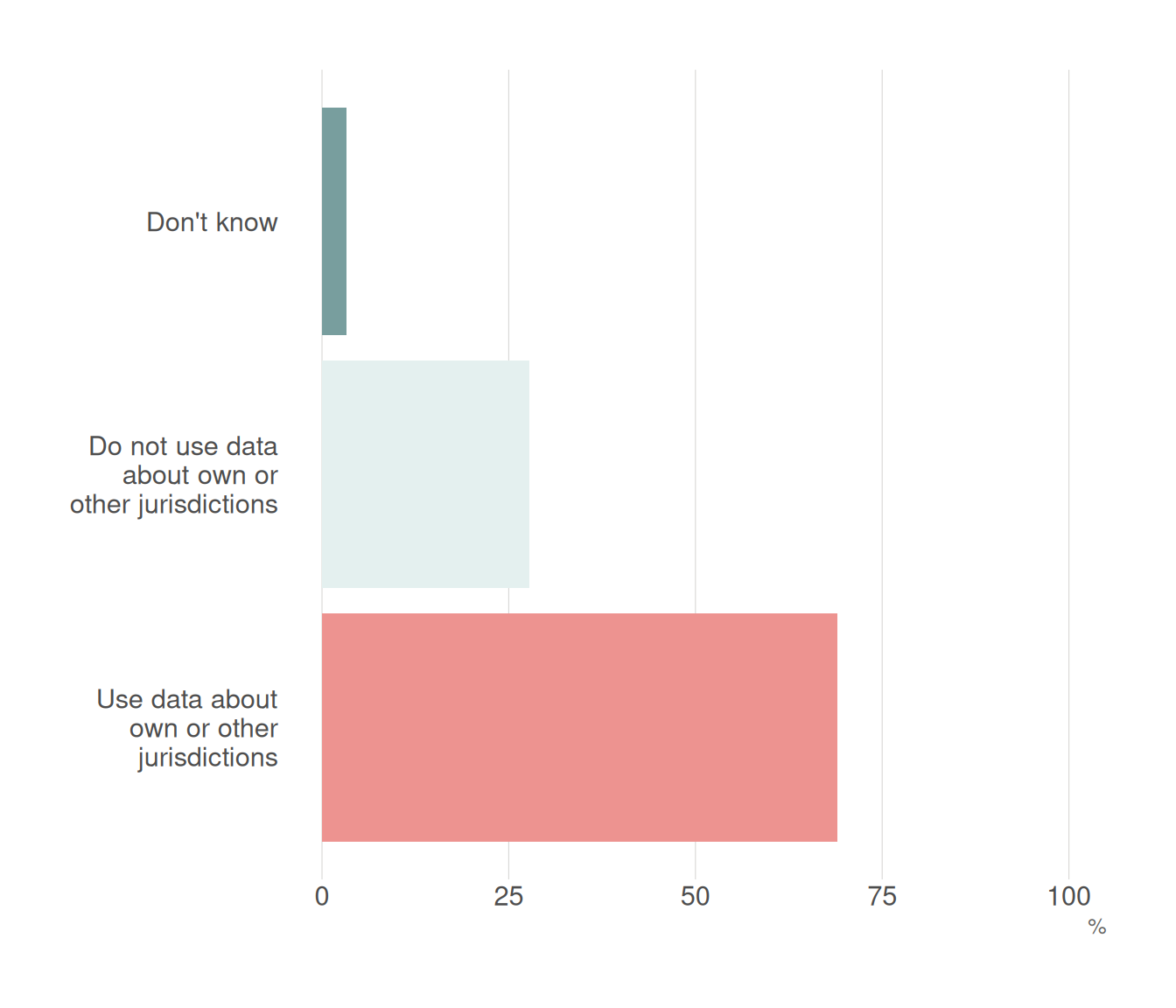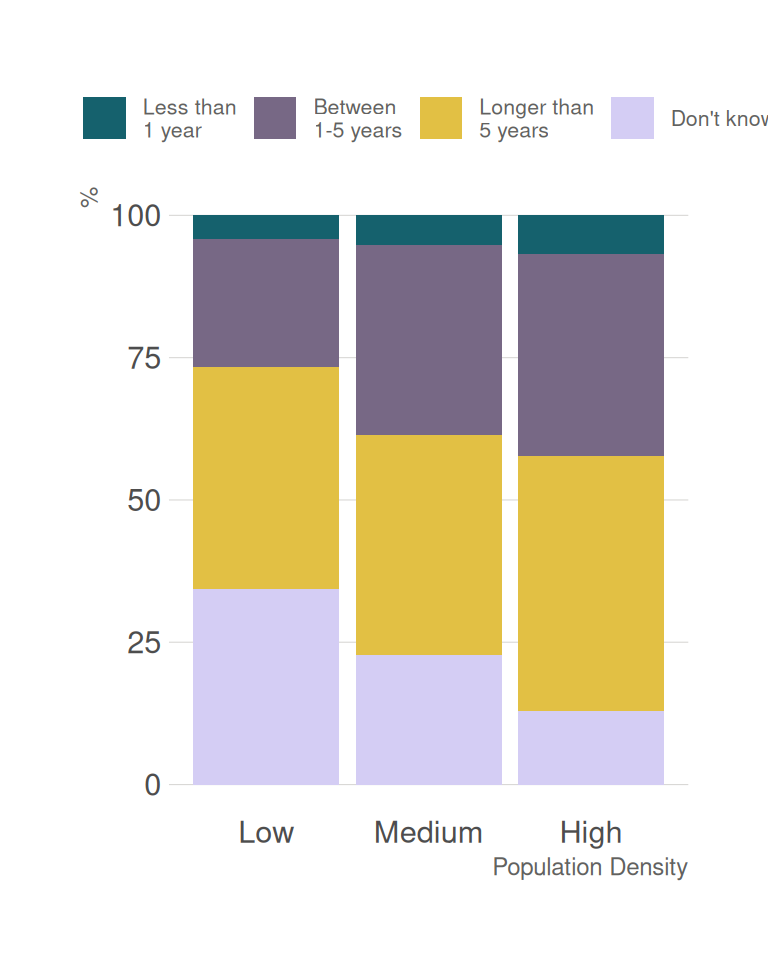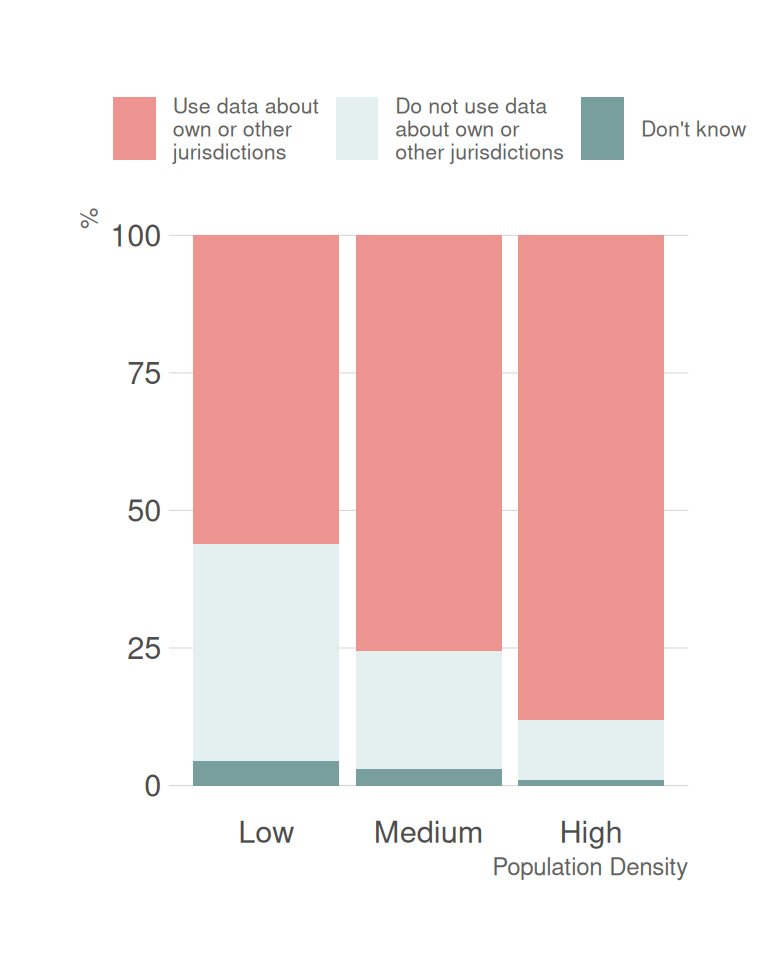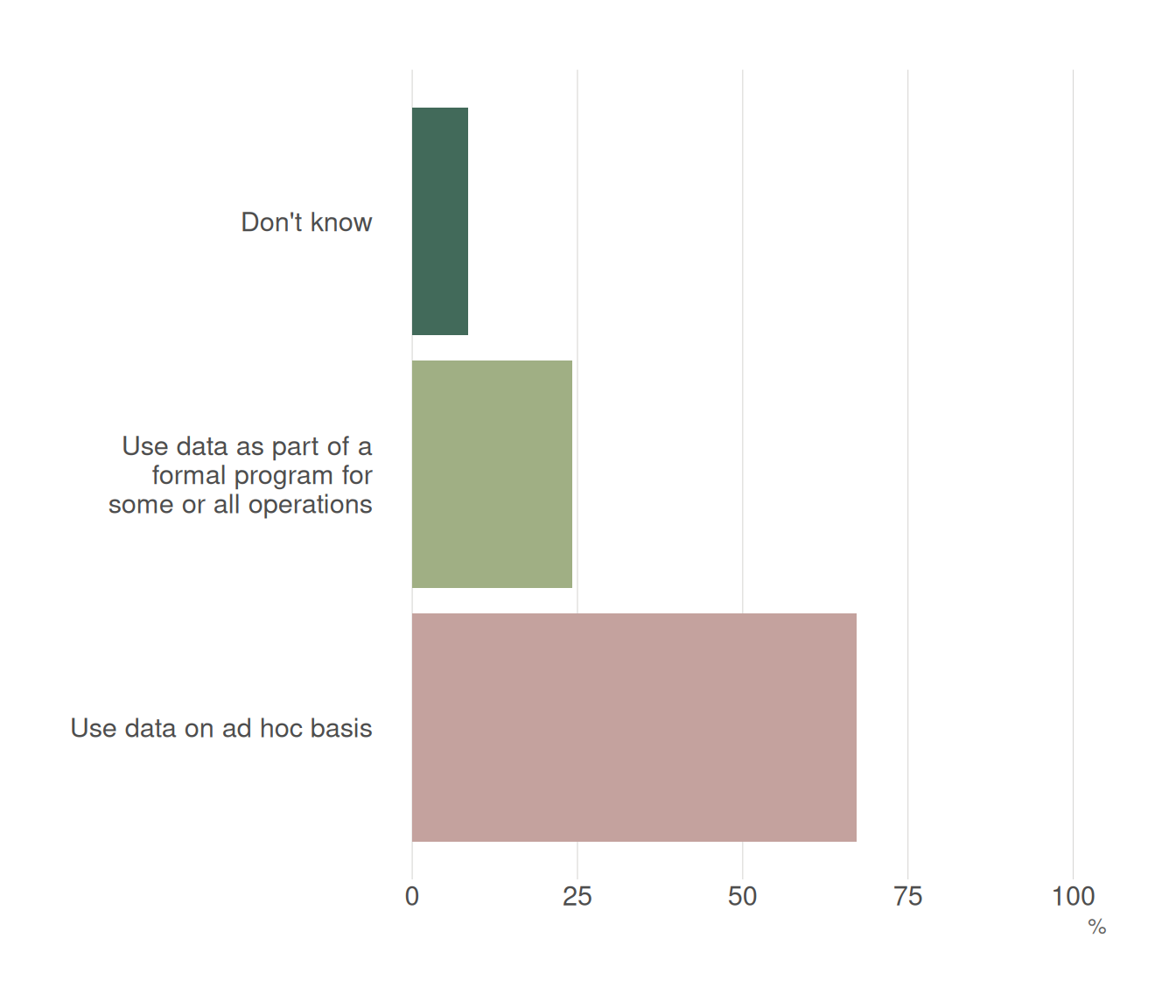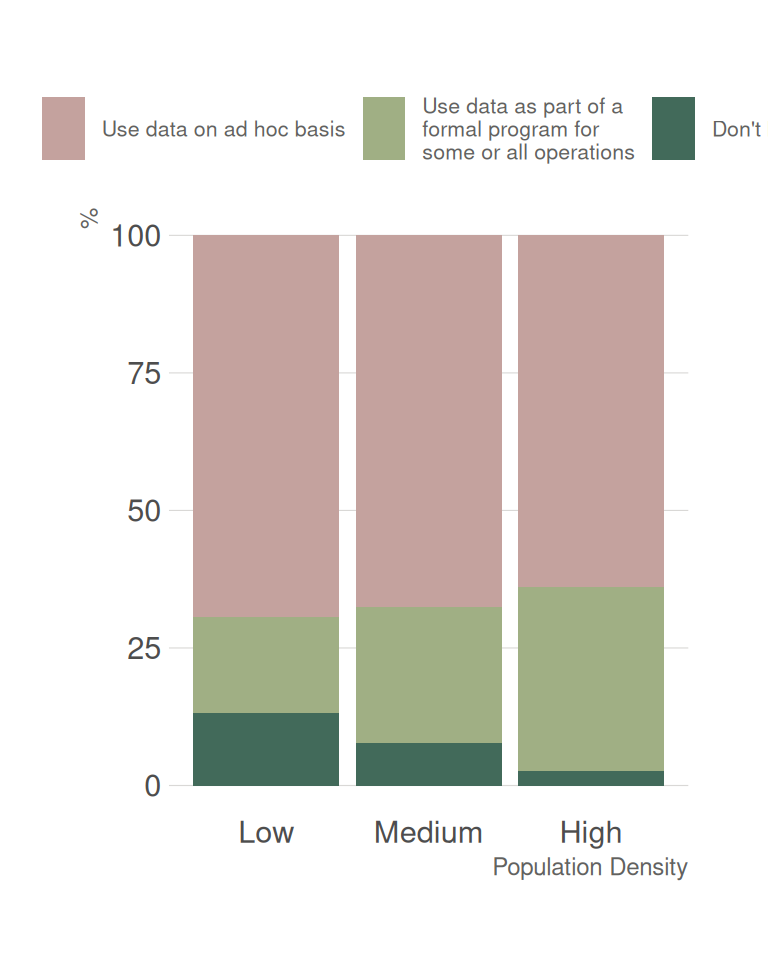5 The Use of Data in Local Governance - A Michigan Perspective
This case study explores the current state of data-driven decision-making in Michigan’s local governments, highlighting challenges and opportunities for integrating data into policy and governance based on the results of the Michigan Public Policy Survey (MPPS)(Ivacko et al., 2013).
5.1 Michigan Public Policy Survey
The MPPS, established post the 2009 Great Recession, is the first ongoing survey of local leaders across an entire state in the United States, involving over 1,856 jurisdictions in Michigan. It addresses a critical gap by providing insights into local officials’ perspectives, crucial for informed policymaking. Conducted biannually, it tracks long-term trends on fiscal and operational policies while addressing current issues like the COVID-19 pandemic and infrastructure. Collaborations with key associations enhance its credibility and scope.
5.2 Current Situation of Policy and Decision-Making in Michigan Local Governments
Michigan’s local governments have seen significant growth in data-driven decision-making (see Figure 5.1 and Figure 5.2).
This approach is now widespread across jurisdictions of all population sizes (see Figure 5.3) and across regions, with many jurisdictions using data to inform budgeting and resource allocation.
Despite this progress, most data use remains informal or ad hoc (see Figure 5.4), particularly among smaller communities (see Figure 5.5).
The MPPS reveals that while larger jurisdictions are more likely to engage in formal performance measurement, over half of the state’s smallest jurisdictions also incorporate some form of data into their decision-making processes (see Figure 5.2). This indicates a trend towards broader adoption, albeit at varying levels of formality.
5.3 Challenges and Concerns
- Cost Concerns
Many local governments, especially smaller ones with limited resources, perceive data use as costly. The MPPS found that 62% of non-data users cited cost concerns, though only 28% of current users reported significant issues, suggesting costs may be manageable.
- Informal Practices
The reliance on informal methods can lead to inconsistent outcomes and less accountability. Only about 16% of jurisdictions have formal performance measurement practices, indicating a gap in structured data use.
- Resource Constraints
Smaller jurisdictions often face limitations in staff and financial resources, hindering their ability to adopt more formal data practices.
5.4 Opportunities and Benefits
- Fiscal Efficiency
Data-driven approaches help identify cost savings and program efficiencies, crucial for jurisdictions grappling with fiscal challenges.
- Improved Service Delivery
By aligning services with community needs, data can enhance service quality and responsiveness.
- Enhanced Transparency and Trust
Effective use of data fosters transparency, improving public trust in government decisions.
- Policy Communication
Data provides a clear evidence base for policy-making, aiding communication between governments and stakeholders.
5.5 Conclusion
The integration of data into Michigan’s local governance has proven valuable despite challenges like cost concerns and resource limitations. The broader adoption of data-driven practices, even informally, highlights its potential to improve decision-making and service delivery.
5.6 Recommendations
Capacity Building - Invest in training to enhance technical and analytical skills among local officials.
Encourage Collaboration - Foster partnerships with academic institutions or tech firms to support data initiatives.
Leverage Resources - Utilise available tools and frameworks, such as those provided by Michigan’s MPPS, to guide data practices.
Promote Leadership and Cultural Change - Champion leadership roles that prioritize data use and cultivate a culture of evidence-based decision-making.
By adopting these strategies, countries can effectively integrate data into local governance, enhancing policy outcomes and public trust.
